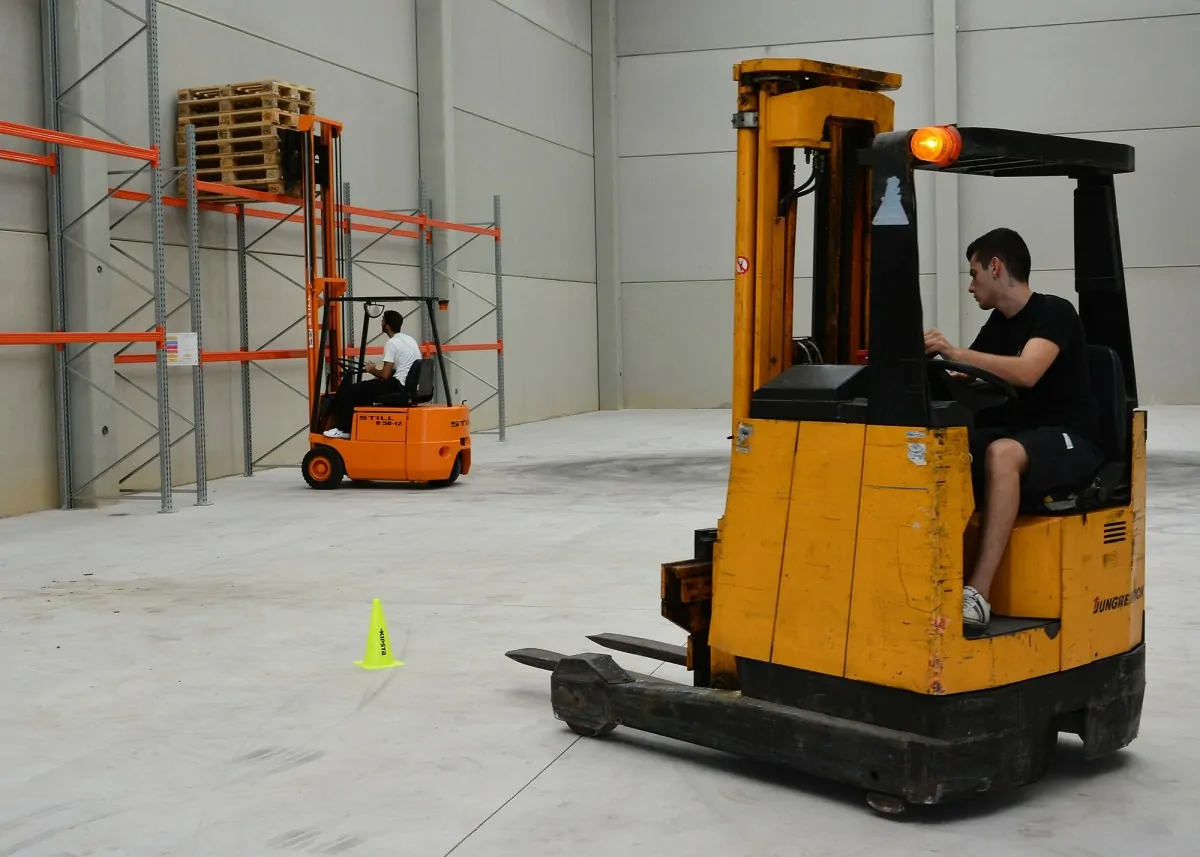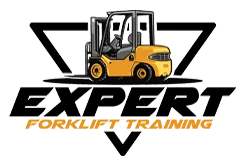
The Most important Skills for the Forklift Job
When it comes to operating a forklift, proficiency in the necessary skills is essential for ensuring safety, productivity, and efficiency in the workplace. Whether you’re a seasoned forklift operator or just starting your career in this field, acquiring, and honing these skills will make you a valuable asset to any employer. In this article, we will explore the most important skills for the forklift job, emphasizing the significance of forklift training and obtaining a forklift training license.
1. Technical Competence and Equipment Knowledge
The foremost skill for a forklift operator is technical competence and a deep understanding of the equipment. This includes familiarizing oneself with the different types of forklifts, their functionalities, and the specific controls and features of the forklift being operated. Operators should be adept at maneuvering the forklift in tight spaces, positioning the forks accurately, and understanding load capacities and weight distribution.
2. Safety Awareness and Risk Management
Safety is paramount in any workplace, particularly when operating heavy machinery like forklifts. Forklift operators must possess excellent safety awareness and adhere to safety guidelines at all times. This includes wearing appropriate personal protective equipment (PPE), inspecting the forklift before each use, maintaining clear visibility, and utilizing the horn and lights effectively. Being aware of potential hazards, such as uneven surfaces, slippery floors, or overhead obstructions, is crucial for accident prevention.
3. Spatial Awareness and Depth Perception
Operating a forklift demands exceptional spatial awareness and depth perception. Forklift operators must have a keen understanding of the dimensions and limitations of their equipment, as well as a good sense of distance and height. This skill enables operators to navigate through narrow aisles, stack pallets accurately, and avoid collisions with other objects or individuals in the vicinity.
4. Communication and Teamwork
Effective communication is vital for a smooth workflow in any industry. Forklift operators should be proficient in verbal and non-verbal communication to coordinate their movements with other team members, such as warehouse supervisors, loaders, and other forklift operators. Clear and concise communication helps prevent accidents and enhances overall productivity.
5. Problem-Solving and Decision-Making Abilities
In a fast-paced work environment, forklift operators often encounter unexpected challenges that require quick thinking and effective problem-solving. Whether it’s determining the best route to navigate through a crowded warehouse or adjusting to changes in load sizes and shapes, operators must be adaptable and capable of making sound decisions under pressure. Being proactive and anticipating potential issues can significantly improve operational efficiency.
6. Time Management and Efficiency
Forklift operators play a crucial role in maintaining an efficient workflow within a warehouse or distribution center. Time management skills are essential for prioritizing tasks, organizing loads, and completing assignments promptly. Operators should be able to optimize their routes, minimize downtime, and ensure the timely movement of goods, contributing to increased productivity and customer satisfaction.
The Role of Forklift Training and Obtaining a Forklift Training License
To develop and enhance these skills, proper forklift training is indispensable. Forklift training programs provide comprehensive knowledge and practical experience necessary for safe and proficient forklift operation. These programs cover topics such as equipment maintenance, safety procedures, load handling techniques, and emergency protocols.
In addition to training, obtaining a forklift training license is highly recommended. A forklift training license serves as proof of an individual’s competence and compliance with safety regulations. Many employers require operators to possess a valid license before operating a forklift on their premises. This certification not only enhances employability but also instills confidence in employers, knowing that their operators are trained professionals who prioritize safety.
Ongoing Training and Continuing Education:
Forklift operators should prioritize ongoing training and continuing education to stay updated with the latest industry standards, regulations, and best practices. Regular refresher courses and additional training sessions can help operators enhance their skills, learn new techniques, and reinforce their knowledge of safe forklift operation.
Ergonomics and Physical Fitness:
Operating a forklift can be physically demanding. It is important for operators to maintain good physical fitness and practice proper ergonomics. This includes maintaining proper posture, using seat belts, and avoiding excessive strain on the body while operating the equipment. Regular exercise and stretching can help prevent injuries and promote overall well-being.
Environmental Awareness:
Forklift operators should be aware of their surroundings and adapt to different environmental conditions. This includes adjusting their driving techniques based on factors such as slippery surfaces, uneven terrain, or low visibility due to weather conditions. Being mindful of the environment and taking appropriate precautions can prevent accidents and ensure safe operations.
Record-Keeping and Documentation:
Forklift operators should be diligent in maintaining accurate records and documentation related to their operations. This includes documenting pre-shift inspections, maintenance records, incident reports, and any relevant training certifications. Good record-keeping practices demonstrate professionalism, compliance, and accountability.
Cross-Functional Skills:
Having knowledge and skills beyond basic forklift operation can be beneficial for forklift operators. Being proficient in related tasks such as inventory management, basic maintenance, or operating other warehouse equipment can make operators more versatile and valuable to their employers.
Continuous Improvement and Professional Development:
Forklift operators should always strive for continuous improvement and seek opportunities for professional development. This can include attending workshops, seminars, or industry conferences, as well as actively seeking feedback and learning from experienced operators. Embracing a growth mindset and being open to learning new skills can contribute to long-term success in the field.
Conclusion
Becoming a skilled forklift operator requires a combination of technical competence, safety awareness, spatial awareness, communication skills, problem-solving abilities, and time management. By prioritizing ongoing training, obtaining a forklift training license, and staying updated with industry standards, operators can continuously enhance their skills and contribute to the safe and efficient workplaces where forklift operators work.
To acquire and enhance these skills, forklift training is crucial. Forklift training programs provide comprehensive knowledge and practical experience, ensuring operators are equipped with the necessary skills to handle the equipment safely. Additionally, obtaining a forklift training license adds credibility and demonstrates compliance with safety regulations, making operators more marketable to potential employers.
By prioritizing the development of these essential skills and investing in proper forklift training, operators can excel in their roles and contribute to a safe and productive working environment. Whether you’re a seasoned forklift operator or someone aspiring to enter this field, never underestimate the importance of continuous skill development and staying up to date with the latest safety standards and practices.
Remember, proficiency in these skills not only benefits your career but also ensures the well-being of yourself, your colleagues, and the overall success of your organization. So, invest in your training, obtain a forklift training license, and take pride in being a skilled and responsible forklift operator.
